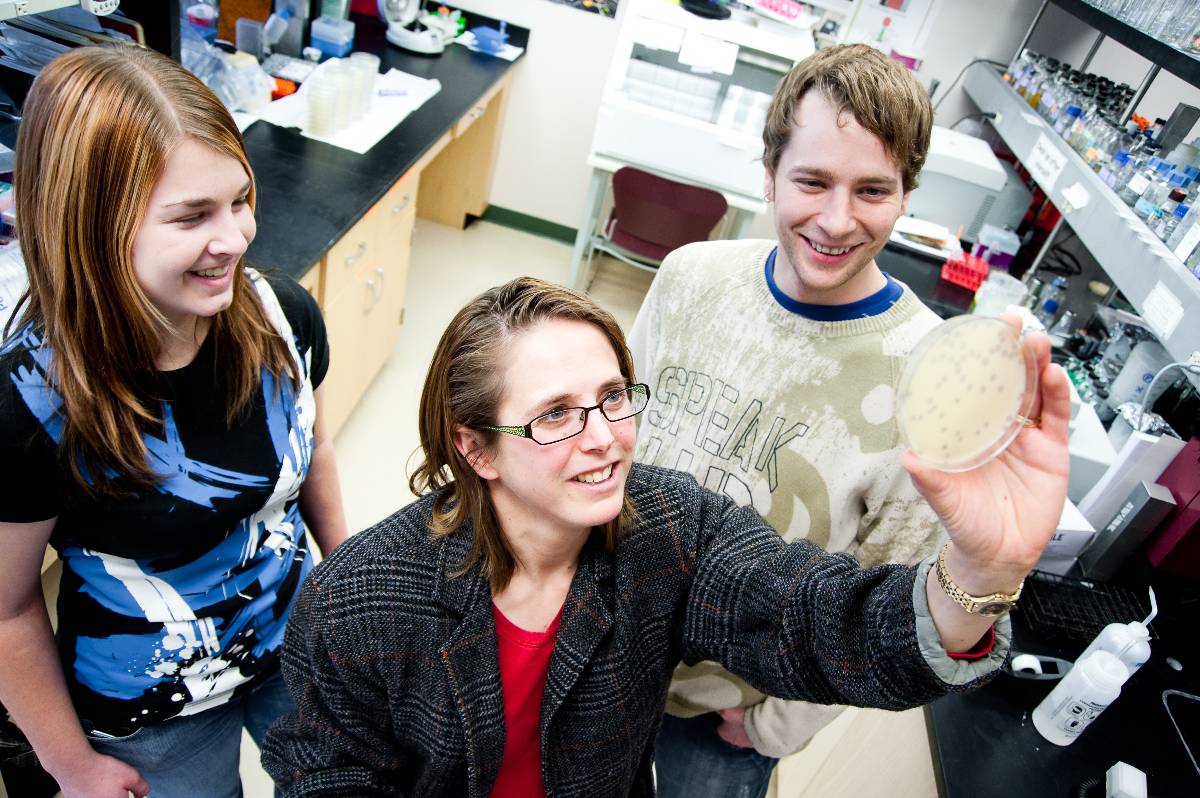2019-2020 Catalog [ARCHIVED CATALOG]
Biological Sciences
|
|
| Department Head: |
Amy Kuenzi |
 |
| |
(406) 496-4793 |
| |
CBB 219 |
| |
|
| Administrative Assistant: |
Michelle Bennetts |
| |
(406) 496-4182 |
| |
CBB 224 |
| |
|
| Fax: |
(406) 496-4135 |
Mission and Goals
The mission of the Biological Sciences program is to provide a quality education in biological sciences through close student-faculty interaction and by providing students with research opportunities. Although the field of biology is expansive, and everything it encompasses cannot be taught, students will learn the process of seeking knowledge from traditional and innovative classroom techniques, ample laboratory and research experience, and appropriate advising.
The Biological Sciences Department also endeavors to carry out its service responsibilities with high quality, up-to-date biology courses from which credits can be transferred both within and outside of the University of Montana and the Montana University System. In addition to its general service functions, the department specifically services the Environmental Engineering, Nursing program, and Occupational Safety and Health (OSH) programs on the North Campus and the College of Technology’s Health programs.
The Department of Biological Sciences administers two degree programs, a Bachelor of Science degree in Biological Sciences and the Bachelor of Applied Science (BAS) degree in Biology. The BS degree is offered in two tracks and prepares students for graduate and professional schools. The BAS allows students with an Associate of Applied Science degree to earn a four-year degree with a minimum of additional college work. With either degree, students may be employed as professionals in various biological science disciplines.
Montana Tech graduates with a B.S. in Biological Sciences or a B.A.S. in Biology will:
- have a general working knowledge of biology including Evolution, Ecology, Genetics, Cellular and Molecular Biology,
- be proficient in using basic biological equipment and techniques in both laboratory and field settings,
- be able to apply their knowledge to a variety of biological problems,
- have effective oral and written communication skills,
- be able to use scientific literature,
- be able to conduct research independently and with others.
Outcomes will be assessed by:
- normal course work and exams,
- success in completing a senior thesis,
- success in exams such as the GRE, MCAT, and job and professional school placement.
ProgramsBachelor of ScienceBachelor of Applied ScienceCertificateNon-Degree
|